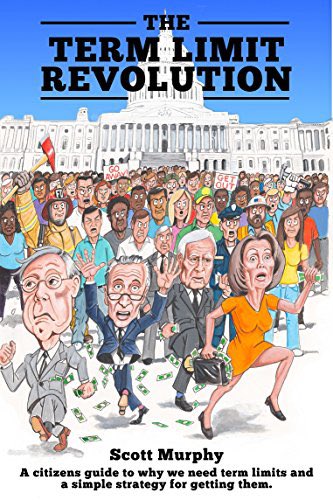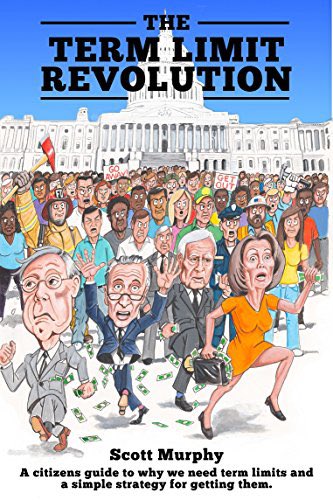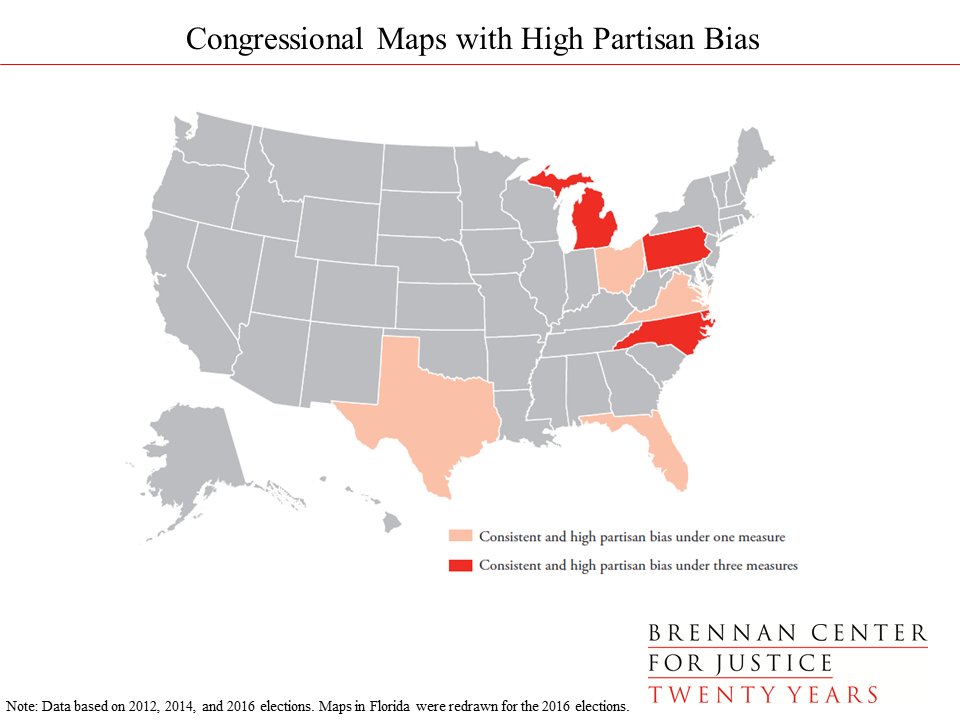(Thanks @SCOTUSblog for hosting) #PROMESA 19/
#PROMESA 26/
#PROMESA 27/
#PROMESA 30/
#PROMESA 33/
#PROMESA 33/
#PROMESA 34/
#PROMESA 35/
#PROMESA 36/
#PROMESA 38/
Several petitions for cert followed.
#PROMESA 40/
Five petitions for cert were filed by some of the leading lights of the SCOTUS bar. Three of the petitions challenged the CA1's ruling on the Appointments Clause question. The other two challenged the finding re: the de facto officer doctrine.
#PROMESA 41/
supremecourt.gov/DocketPDF/18/1…
supremecourt.gov/DocketPDF/18/1…
supremecourt.gov/DocketPDF/18/1…
#PROMESA 42/
supremecourt.gov/DocketPDF/18/1…
supremecourt.gov/DocketPDF/18/1…
#PROMESA 43/
#PROMESA 44/
supremecourt.gov/search.aspx?fi…
The briefing schedule was somewhat unusual.
#PROMESA 45/
#PROMESA 46/
#PROMESA 47/
#PROMESA 48/
#PROMESA 49/
#PROMESA 50/
#PROMESA 51/
#PROMESA 53/
#PROMESA 55/
#PROMESA 56/
Then we get to the goods.
#PROMESA 57/
#PROMESA 58/
#PROMESA 59/
papers.ssrn.com/sol3/papers.cf…
#PROMESA 60/
#PROMESA 61/
#PROMESA 62/
#PROMESA 63/
#PROMESA 64/
#PROMESA 65/
#PROMESA 66/
#PROMESA 67/
#PROMESA 68/
#PROMESA 69/
#PROMESA 70/
#PROMESA 71/
72/
#PROMESA 73/
#PROMESA 74/
#PROMESA 75/
#PROMESA 76/
#PROMESA 77/
#PROMESA 78/
#PROMESA 79/
#PROMESA 80/
#PROMESA 81/
#PROMESA 82/
#PROMESA 83/
#PROMESA 84/
#PROMESA 85/
#PROMESA 86/
#PROMESA 87/
#PROMESA 88/
#PROMESA 89/
#PROMESA 90/
#PROMESA 91/
The brief is quite punchy and I recommend it for a good read. 92/
#PROMESA 93/
#PROMESA 94/
#PROMESA 95/
#PROMESA 96/
#PROMESA 97/
#PROMESA 98/
#PROMESA 99/
#PROMESA 100/
#PROMESA 101/
#PROMESA 102/
#PROMESA 103/
#PROMESA 104/
105/
106/
107/
#PROMESA 108/
#PROMESA 109/
#PROMESA 110/
#PROMESA 111/
#PROMESA 112/
#PROMESA 113/
I'm gonna take a break before tackling the last two Petitioner's briefs.
#PROMESA 114/
#PROMESA 115/
#PROMESA 116/
#PROMESA 117/
#PROMESA 118/
#PROMESA 119/
#PROMESA 120/
#PROMESA 121/
#PROMESA 122/
#PROMESA 123/
#PROMESA 124/
#PROMESA 125/
#PROMESA 126/
#PROMESA 127/
#PROMESA 128/
#PROMESA 129/
#PROMESA 130/
#PROMESA 131/
#PROMESA 132/
#PROMESA 133/
#PROMESA 134/
#PROMESA 135/
#PROMESA 136/
#PROMESA 137/
#PROMESA 138/
#PROMESA 139/
#PROMESA 140/
#PROMESA 141/
#PROMESA 142/
#PROMESA 143/
#PROMESA 144/
supremecourt.gov/DocketPDF/18/1…
145/
#PROMESA 146/
#PROMESA 147/
#PROMESA 148/
#PROMESA 149/
#PROMESA 150/
#PROMESA 151/
#PROMESA 152/
#PROMESA 153/
#PROMESA 154/
#PROMESA 155/
#PROMESA 156/
#PROMESA 158/
#PROMESA 159/
#PROMESA 160/
#PROMESA 161/
Okay - on to the next brief.
#PROMESA 162/
#PROMESA 163/
Rather than the Title III bankruptcy proceedings, this brief focuses on #PROMESA Title VI. 164/
#PROMESA 166/
#PROMESA 167/
#PROMESA 168/
#PROMESA 169/
#PROMESA 170/
#PROMESA 171/
#PROMESA 172/
#PROMESA 173/
#PROMESA 174/
#PROMESA 175/
supremecourt.gov/DocketPDF/18/1…
#PROMESA 176/
#PROMESA 177/
#PROMESA 178/
#PROMESA 180/
#PROMESA 181/
#PROMESA 182/
#PROMESA 183/
#PROMESA 184/
#PROMESA 187/
#PROMESA 189/
#PROMESA 190/
#PROMESA 191/
#PROMESA 192/
#PROMESA 194/
#PROMESA 195/
#PROMESA 197/
#PROMESA 198/
#PROMESA 199/
#PROMESA 200/
#PROMESA 201/
#PROMESA 202/
#PROMESA 203/
#PROMESA 204/
#PROMESA 205/
#PROMESA 206/
#PROMESA 207/
#PROMESA 208/
#PROMESA 209/
#PROMESA 210/
#PROMESA 211/
#PROMESA 212/
#PROMESA 213/
#PROMESA 215/
#PROMESA 216/
As noted, many of these arguments tread the same ground as the Aurelius brief, but a few things stand out.
#PROMESA 217/
#PROMESA 218/
#PROMESA 219/
#PROMESA 220/
#PROMESA 221/
#PROMESA 222/
#PROMESA 223/
#PROMESA 225/
#PROMESA 226/
#PROMESA 227/
That being said, the UTIER brief does an excellent job explaining why these cases should be rejected.
#PROMESA 228/
#PROMESA 229/
#PROMESA 230/
#PROMESA 231/
#PROMESA 232/
#PROMESA 233/
#PROMESA 234/
#PROMESA 235/
#PROMESA 236/
#PROMESA 237/
#PROMESA 238/
#PROMESA 239/
#PROMESA 240/
#PROMESA 241/
#PROMESA 242/
#PROMESA 243/
#PROMESA 244/
#PROMESA 245/
#PROMESA 246/
#PROMESA 248/
#PROMESA 249/
#PROMESA 250/
#PROMESA 251/
#PROMESA 252/
#PROMESA 253/
#PROMESA 254/
#PROMESA 256/
#PROMESA 257/
#PROMESA 258/
#PROMESA 259/
#PROMESA 260/
#PROMESA 262/
#PROMESA 264/
#PROMESA 266/
#PROMESA 268/
#PROMESA 269/
#PROMESA 270/
#PROMESA 271/
#PROMESA 272/
#PROMESA 273/
#PROMESA 274/
#PROMESA 275/
#PROMESA 276/
#PROMESA 279/
#PROMESA 281/
#PROMESA 282/
#PROMESA 283/
#PROMESA 284/
#PROMESA 285/
#PROMESA 286/
#PROMESA 287/
#PROMESA 288/
#PROMESA 289/
#PROMESA 290/
#PROMESA 291/
#PROMESA 292/
#PROMESA 293/
#PROMESA 294/
#PROMESA 295/
#PROMESA 296/
#PROMESA 297/
#PROMESA 298/
#PROMESA 299/
#PROMESA 300/
#PROMESA 301/
#PROMESA 302/
#PROMESA 303/
#PROMESA 304/
#PROMESA 305/
#PROMESA 306/
#PROMESA 307/
#PROMESA 308/
#PROMESA 309/
#PROMESA 310/
#PROMESA 311/
#PROMESA 312/
#PROMESA 313/
#PROMESA 314/
#PROMESA 315/
#PROMESA 316/
#PROMESA 317/
#PROMESA 318/
#PROMESA 319/
#PROMESA 320/
#PROMESA 321/
#PROMESA 322/
#PROMESA 323/
#PROMESA 324/
#PROMESA 325/
#PROMESA 326/
#PROMESA 327/
#PROMESA 328/
#PROMESA 329/
#PROMESA 330/
#PROMESA 331/
#PROMESA 332/
#PROMESA 333/
#PROMESA 334/
#PROMESA 335/
#PROMESA 336/
#PROMESA 337/
#PROMESA 338/
Brief of Elected Officers - supremecourt.gov/DocketPDF/18/1…
@WLF Brief - supremecourt.gov/DocketPDF/18/1…
Brief of San Juan - supremecourt.gov/DocketPDF/18/1…
#PROMESA 339/
Acevedo-Vila Brief - supremecourt.gov/DocketPDF/18/1…
Former Governors Brief -
supremecourt.gov/DocketPDF/18/1…
@aclu & @aclupr Brief - supremecourt.gov/DocketPDF/18/1…
VI Bar Assn Brief - supremecourt.gov/DocketPDF/18/1…
#PROMESA 340/
Former Judges Brief - supremecourt.gov/DocketPDF/18/1…
and finally, @EquallyAmerican (who I just realized is on Twitter - hi guys!) Brief - supremecourt.gov/DocketPDF/18/1…
#PROMESA 341/
#PROMESA 342/
#PROMESA 343/
#PROMESA 344/
#PROMESA 345/
#PROMESA 346/
#PROMESA 349/
#PROMESA 350/
#PROMESA 351/
#PROMESA 352/
#PROMESA 353/
#PROMESA 354/
#PROMESA 355/
#PROMESA 356/
#PROMESA 357/
#PROMESA 358/
#PROMESA 359/
#PROMESA 360/
#PROMESA 361/
#PROMESA 362/
#PROMESA 363/
#PROMESA 364/
#PROMESA 365/
#PROMESA 366/
#PROMESA 367/
#PROMESA 368/
#PROMESA 369/
#PROMESA 371/
#PROMESA 372/
#PROMESA 373/
#PROMESA 374/
#PROMESA 375/
#PROMESA 376/
#PROMESA 377/
#PROMESA 378/
It notes that, at this point, all parties agree that federal officers must be appointed consistent with Art. II and territorial officers do not. The only question is: which are the Board members?
#PROMESA 379/
#PROMESA 380/
#PROMESA 381/
#PROMESA 382/
#PROMESA 383/
#PROMESA 385/
#PROMESA 386/
#PROMESA 387/
#PROMESA 388/
#PROMESA 389/
#PROMESA 390/
#PROMESA 391/
#PROMESA 392/
#PROMESA 393/
#PROMESA 394/
#PROMESA 395/
#PROMESA 396/
#PROMESA 397/
#PROMESA 398/
#PROMESA 399/
#PROMESA 400/
#PROMESA 401/
#PROMESA 402/
#PROMESA 403/
#PROMESA 404/
#PROMESA 405/
#PROMESA 406/
#PROMESA 407/
It spends a spare 15 pages responding to the arguments supporting CA1's decision re: the Appointments Clause. 408/
#PROMESA 409/
#PROMESA 410/
#PROMESA 411/
#PROMESA 412/
#PROMESA 413/
#PROMESA 414/
#PROMESA 415/
#PROMESA 416/
#PROMESA 417/
#PROMESA 418/
#PROMESA 419/
#PROMESA 420/
#PROMESA 421/
#PROMESA 423/
#PROMESA 424/
#PROMESA 425/
#PROMESA 427/
#PROMESA 428/
#PROMESA 429/
#PROMESA 431/
#PROMESA 432/
#PROMESA 433/
#PROMESA 434/
#PROMESA 437/
#PROMESA 438/
#PROMESA 440/
#PROMESA 441/
#PROMESA 442/
#PROMESA 443/
#PROMESA 444/
#PROMESA 445/
#PROMESA 446/
#PROMESA 447/
#PROMESA 448/
#PROMESA 449/
#PROMESA 450/
#PROMESA 451/
#PROMESA 452/
#PROMESA 453/
#PROMESA 454/




